COGA Fact Sheet: Regulatory Timeline
A National Leader
The State of Colorado is a national leader in its commitment to fostering safe and responsible development of Colorado’s oil and gas resources. Over the past nine years Colorado has implemented precedent-setting regulations from baseline groundwater testing and monitoring to air regulations targeting methane leak detection and repair.
More Than Twenty Rulemakings in Nine Years
This regulatory timeline provides summary information on significant legislative and regulatory efforts affecting Colorado’s oil and natural gas industry from 2011 through 2020.
Regulatory Timeline
2011
Hydraulic Fracturing Disclosure Rulemaking
Requires comprehensive public disclosure of the chemicals used in hydraulic fracturing treatments.
2013
Baseline Water Quality Sampling Rulemaking
Rigorous mandatory groundwater sampling and monitoring rulesSetback Rulemaking
Created a uniform 500-foot statewide setback, applicable in both rural and urban areas and a 1,000-foot setback from high occupancy buildings such as schools, nursing homes and hospitals.Wildlife Map Update Rulemaking
Keeping maps updated provides state regulators with information to ensure that sensitive species are appropriately accounted for during exploration.Spills and Releases Rulemaking
Tightened spill reporting requirements to broaden the definition of what needs to be reported and requires that spills are reported within 24 hours to landowners and local governments.
2014
Air Emissions from Oil and Gas
Colorado’s Air Quality Control Commission passed new precedent-setting rules targeting air emissions from the oil and natural gas industry.
2015
Complainant Rulemaking
COGCC implements a streamlined process for the public to submit complaints. The new online portal makes the agency’s methods for receiving, processing, addressing, closing and communicating complaints more effective and transparent. It includes guidance for making a complaint, what a complainant can expect and the rights of the complainant.Flood Lessons Learned Rulemaking
The state updated its regulations to require remote shut-in capabilities and secondary containment areas around tanks. Additional reporting of equipment and wells in existing floodplains also was required.Enforcement and Penalty Rulemaking
Fines were increased from $1,000 to $15,000 for each violation and eliminated the $10,000 overall cap for violations.
2016
State Implementation Plan (SIP)
Strengthened rules to reduce ozone levels for the Denver Metropolitan and North Front Range nonattainment area.Governor’s Oil and Gas Task Force Rulemaking
The Task Force was comprised of 21 members representing local government, civic organizations, environmental interests, agriculture, and affected industries. They put forward 9 recommendations that empowered local governments in the permitting process and allowed for site specific mitigation as a condition of permit approval.
2017
AQCC CTG Rulemaking & Revisions to Reg 7
To further reduce ground-level ozone, improve air quality, and comply with federal requirements, new rules were passed to reduce emissions from oil and natural gas sources.
2018
Requirements call 811 Underground Facilities (SB 167)
This legislation brought Colorado into compliance with new damage prevention enforcement rules issued by the U.S. Department of Transportation’s Pipeline and Hazardous Materials Safety Administration in 2015.Flowline Rulemaking
Dozens of new rules pertaining to flowlines and other types of piping systems were approved, along with other regulations increasing transparency in safety and gas leak reporting.School Setback Rulemaking
The definition of a school facility was greatly expanded and broadens the 1,000 foot boundary to include not just the school building, but also surrounding facilities, such as playgrounds, athletic fields, fences, and other outdoor areas.
2019
500 Series Rulemaking
As directed by SB19-181, this rulemaking enabled the use of administrative law judges and hearing officers to ensure the COGCC is properly processing applications.Flowline Rulemaking
Following the 2018 rule changes, additional public disclosure, inspection, and deactivation requirements were added.AQCC Regulation Number 7 & Regulation Number 3
Reg 7 addresses control of Ozone and control of Volatile Organic Compounds and Nitrogen Oxide emissions. Reg 3 addresses stationary source permitting and air pollutant emission notice requirements.
2020
Wellbore Integrity Rulemaking
This rule strengthened the groundwater protection requirements for oil and natural gas development.AQCC Regulation Number 22
This rule developed Colorado greenhouse gas reporting and emission reduction requirements.
At the time of this update (July 15, 2020) additional COGCC, AQCC and WQCC rulemakings are planned for the calendar year, including new air, water, and comprehensive rule changes at the COGCC that will emphasize health, safety, and the environment.
SB 181 Rulemakings
On April 16, 2019 Governor Jared Polis signed SB 181 into law. This landmark legislation increases regulations on oil and natural gas development and operations in Colorado, with a focus on public health, safety, welfare, the environment and wildlife resources.
Senate Bill 181 is the most comprehensive oil and natural gas legislation Colorado has seen in decades. The passage of SB 181 was the beginning, not the end and the ultimate impacts will be determined by many complicated regulatory rulemakings at both the state and local levels, which could take years to complete.
Over the course of several years, the oil and natural gas industry will go through dozens of extensive and technical rulemakings at both the local and state level as this sweeping law is implemented.
Additional Resources & Information
Colorado Oil & Gas Conservation Commission (COGCC) | www.cogcc.state.co.us
Colorado Department of Public Health & Environment | www.colorado.gov/cdphe
Colorado 8-1-1 | www.colorado811.org



